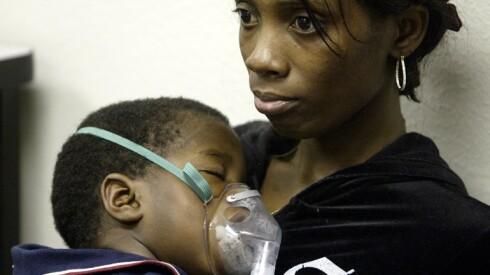-
Even as Republicans on the national stage have turned against EVs, it’s a different story at the state and local level, with economic development agencies in red states shelling out hundreds of millions for new projects.
-
Even with diminished federal funding, organizers of the Baltimore-Social Environmental Collaborative plan to empower community members to keep collecting data and putting it to use.
-
The state-funded Vulnerability Assessment showed that increased flooding caused by climate change poses a significant threat to over 90 percent of Manatee County’s infrastructure.
More Stories
-
A new report by StreetLight Data shows that as vehicle use and traffic congestion continue to be a rising concern for the vast majority of U.S. metro regions, San Francisco alone is making progress.
-
The Connecticut Conference of Municipalities on Tuesday released a study that warns FEMA flooding maps of the state are outdated and makes 30 recommendations and promotes statewide standards on climate resiliency.
-
Experts say that while climate change did not start the Airport, Bridge and Line fires currently burning in Southern California, it did lay the groundwork for their aggressive spread and destructive impacts.
-
To combat evolving fire risks more efficiently, a federal fire agency is developing an emergency response system that uses data to inform action. In California, a new online map makes Clean Air Centers information more accessible.
-
From abolishing the U.S. Department of Education to cutting Title I funding and certifying teachers based on ideology, a controversial proposal from a conservative think tank would upend public education nationwide.
-
Researchers from Children’s Hospital Los Angeles and USC are working with AccuWeather experts to use environmental data to look for breakthroughs in diseases like stroke, heart disease, lung cancer and asthma.
-
Three engineering students at the University of Texas Permian Basin used a 3D printer at the university's makerspace to fashion devices for capturing and disposing of carbon dioxide from internal combustion engines.
-
The Pacific Northwest city will launch a small zero-emission delivery zone later this year, to gather data and collaborate with service operators on effectively removing delivery-related vehicles with emissions from a section of downtown.
-
The 2024 City Clean Energy Scorecard by the American Council for an Energy-Efficient Economy rates 75 of the nation’s largest cities against a number of sustainability and greenhouse gas reduction metrics.
-
For Earth Day, the educational VR company is offering schools one week of free access to online lessons about deforestation, pollution, the harm that plastics have on marine life, and the importance of recycling.
-
Eighty transportation projects will receive nearly $830 million from a discretionary program that aims to improve resistance to extreme weather. Some state and local initiatives will use tools and data-driven analysis to harden infrastructure.
-
The Los Angeles County Metropolitan Transportation Authority recently opened another 5.6 miles of bus priority lanes, giving the region a total of 51 lane miles designed specifically for public transit. Another 46 miles are coming next year.
-
Artificial intelligence could identify farm pollutant sources, University of Minnesota research found. Agriculture contributes 10 percent of U.S. greenhouse gases; in Minnesota, the emissions are its second-biggest source of carbon release.
-
More than 160 e-bike purchase incentive programs currently exist in the United States and Canada. An author of a report on their effectiveness says cities and organizations may have better results if they put goals ahead of design.
-
Ava Community Energy in the San Francisco Bay Area has drafted its Zero-Emission Medium and Heavy-Duty Goods Movement Blueprint to aid in the transition of trucking toward zero-emission vehicles.
-
A new Center for Urban and Coastal Climate Science Research will connect artificial intelligence and machine learning, health disparities, environmental health and climate science in a transdisciplinary approach.
-
The new machine learning method only needs 21 hours of input data to produce accurate air quality forecasts, while traditional models can require months’ worth of data.
-
Falling prices, increased availability and incentives are giving the secondhand electric vehicle market the thrust it needs to grow, introducing the vehicles to a wider cross-section of consumers.





























